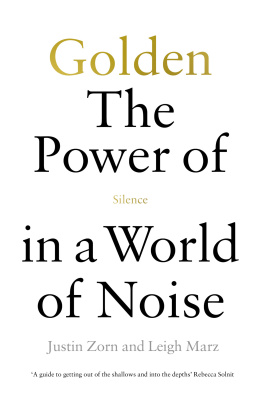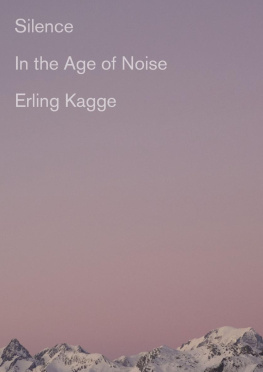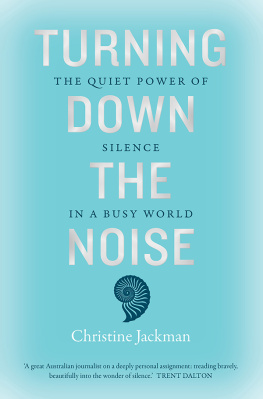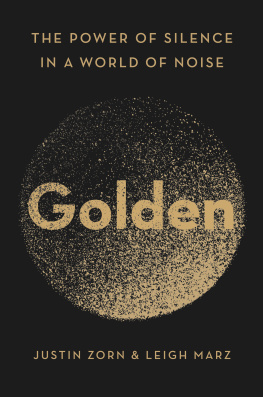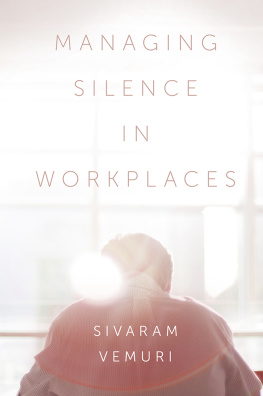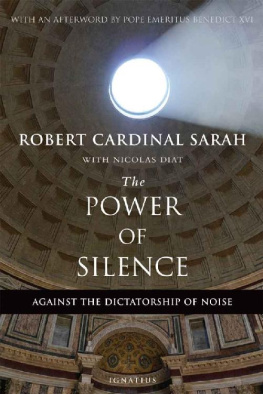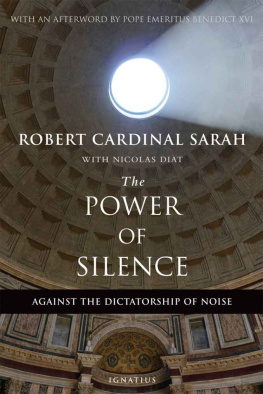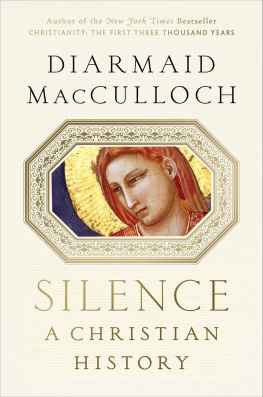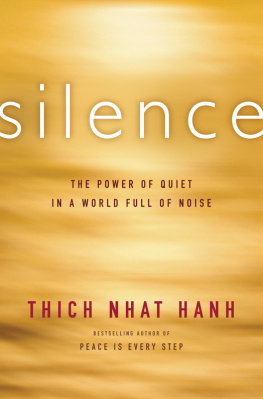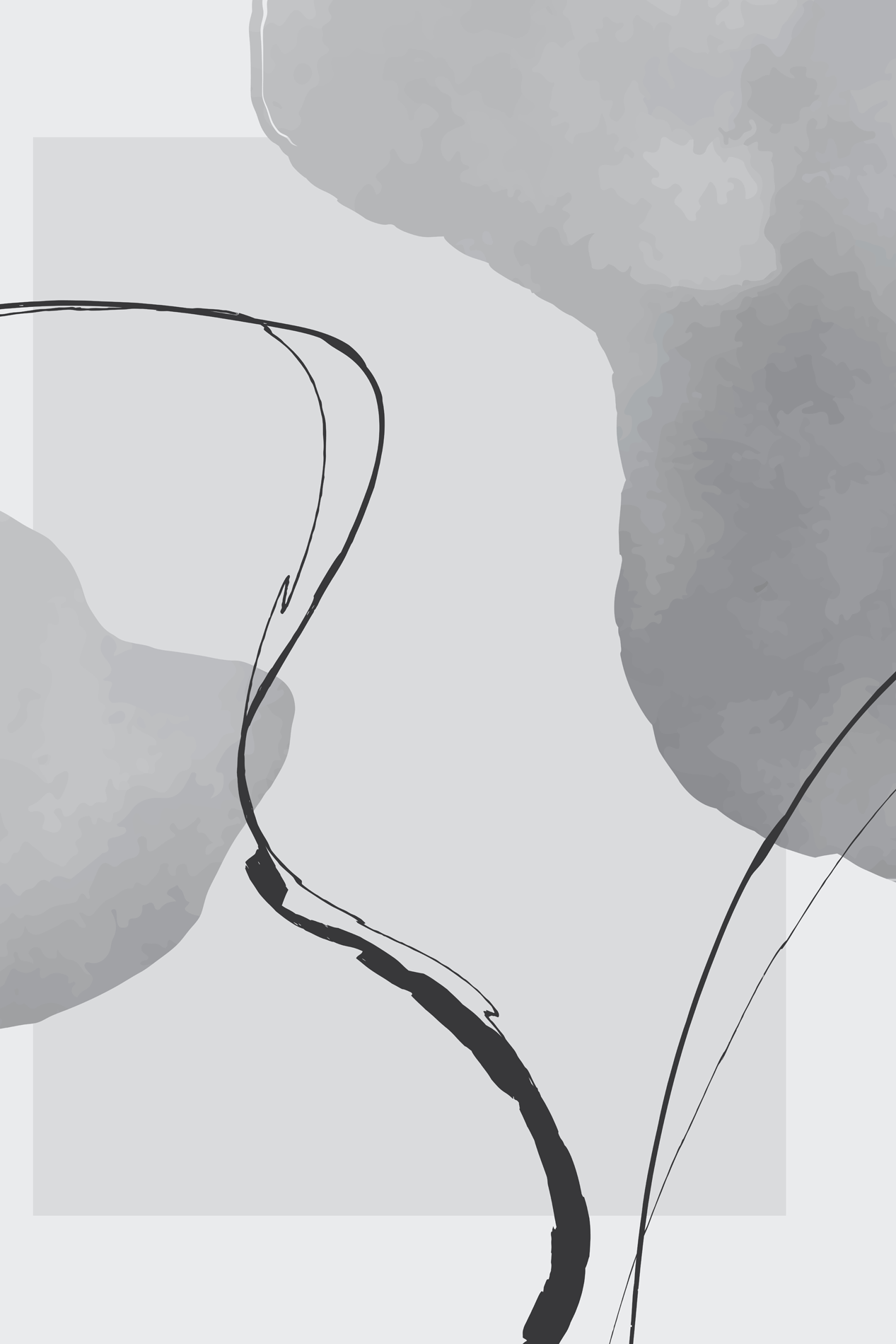
Justin Zorn and Leigh Marz
GOLDEN
The Power of Silence in a World of Noise

EBURY
UK | USA | Canada | Ireland | Australia
New Zealand | India | South Africa
Ebury is part of the Penguin Random House group of companies whose addresses can be found at global.penguinrandomhouse.com.

First published in the United States by Harper Wave in 2022
First published in the United Kingdom by Ebury Edge in 2022
Copyright Justin Talbot-Zorn and Leigh Marz 2022
The moral rights of the authors have been asserted
Cover design Steve Leard
Excerpt from Keeping Quiet from Extravagaria by Pablo Neruda, translated by Alastair Reid. Translation copyright 1974 by Alastair Reid. Used by permission of Farrar, Straus and Giroux.
Designed by Elina Cohen
Illustrations in this book are credited to Leigh Marz and Bob von Elgg at Bigfish Smallpond Design
Title page art courtesy of Shutterstock / Stacey_M
Part title art courtesy of Leigh Marz and Bob von Elgg at Bigfish Smallpond Design
ISBN: 978-1-473-59946-8
This ebook is copyright material and must not be copied, reproduced, transferred, distributed, leased, licensed or publicly performed or used in any way except as specifically permitted in writing by the publishers, as allowed under the terms and conditions under which it was purchased or as strictly permitted by applicable copyright law. Any unauthorized distribution or use of this text may be a direct infringement of the authors and publishers rights and those responsible may be liable in law accordingly.
FOR MEREDY AND MICHAEL
AND IN MEMORY OF ROB ERIOV AND RALPH METZNER

Part I
A SHARED YEARNING
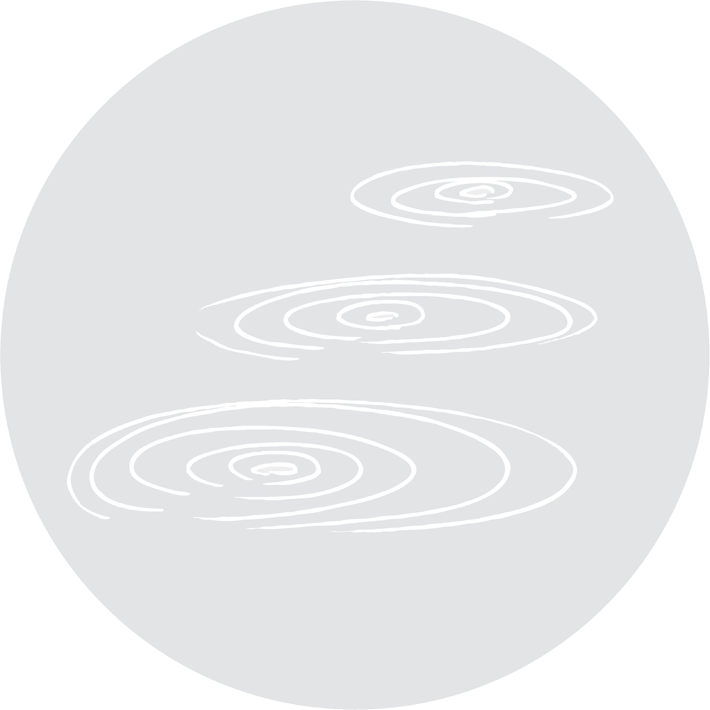
CHAPTER 1
An Invitation
Whats the deepest silence youve ever known?
You can trust the first memory that comes to you.
No need to overthink it.
As you remember the experience, see if you can settle into it. Recall where you are, whats happening around you, and who, if anyone, is present. See if you can summon the atmospherethe quality of light, the mood in the air, the feeling in your body.
Is it quiet to the ears?
Or is it the kind of silence that comes when no person or thing is laying claim to your attention?
Is it quiet in your nerves?
Or is it the kind of silence that lives deeper stilllike when the turbulent waters of internal chatter suddenly part, revealing a clear path forward?
Take a moment to consider what might sound like a strange question: Is the silence simply the absence of noiseor is it also a presence unto itself?

Over the past several years, weve been exploring these questions with an unusual mix of people: neuroscientists, activists, poets, corporate executives, national politicians, teaching physicians, environmental advocates, a whirling dervish, a White House staffer, Buddhist teachers, Christian preachers, a Grammy-winning opera singer, a man incarcerated on death row, a Hollywood sound engineer, a heavy metal front man, a cowboy-lumberjack, and an air force lieutenant colonel. Weve been exploring these questions for ourselves, too. The explorations, both personal and shared, have taken us to many places, including:
The balmy air at sunrise over a vast ocean.
The stillness amidst untrampled high mountain snow.
The questions have also taken us to places that arent auditorily quiet: Births. Deaths. Moments of awe. Moments of dramatic and unexpected change when were left grasping for familiar explanations until we finally have to surrender to the fact that theres nothing left to say.
For us and for others, moments of profound silence have sometimes come through surprisingly high-decibel settings:
Running the perfect line through roaring rapids.
Dusk in the thick woods amidst an electric orchestra of cicadas.
Yielding all self-referential thought to the whomp-whomp beat of a crowded dance floor.
If theres one common denominator to all these improbably diverse varieties of deep silence, we believe its through the answer to the last of the questions that we posed to you. The deepest silence isnt just an absence; its also a presence. Its a presence that can center us, heal us, and teach us.
In his 1836 novel, Sartor Resartus, the Scottish philosopher and mathematician Thomas Carlyle writes of a Swiss inscription: Sprechen ist silbern, Schweigen ist golden (Speech is silvern, Silence is golden).
Or, Carlyle writes, as I might rather express it: Speech is of Time, Silence is of Eternity.
This is the first known instance in English of the aphorism that inspired the title of this book. However, variants stretch back millennia in Latin, Arabic, Hebrew, and Aramaic. An early Islamic isnada lineage of transmitters of a sacred teaching across generationsholds that the origin of the proverb If speech is of silver, then silence is of gold comes from Solomon, the great king of wisdom. To this day, the words are shorthand for the wisdom of knowing when to speak and when to abide.
In our exploration of the meaning of the proverb Silence is golden, we come back again and again to the notion that true silence, profound silence, is more than the absence of noise. Its this presence, too.
BEYOND A POINT-AND-COUNTERPOINT CULTURE
In early 2017, we were pretty despondent about the state of the world. You probably know the feeling. It was well before COVID-19 and the most recent and dire reports about climate change. It was before the latest economic upheavals and the murders of Breonna Taylor and George Floyd. But, even then, we just couldnt see a way forward through the deadlock. We couldnt quite imagine a plausible vision for repairing politics, building a humane economy, or restoring our relationship with nature. It felt as if there was something blocking the capacity for deep conversation about difficult topics and, ultimately, blocking our ability to find creative solutions. Personally, as activists and advocates and parents of young kids, we were at a loss for what to do.
Around that time, we both started feeling a strange intuition. We got the same intimation of where to look for an answer: in silence.
At that particular moment, you could have called both of us lapsed meditators. But what we both felt, independently, wasnt exactly the same thing as a calling to get back on the cushion or escape to a long retreat. It wasnt an impulse to run away. Rather, it was a simple sense that the most intractable problems wont be solved with more thinking or talking. With due respect to the voice and the intellect and the buzzing machinery of material progress, we started feeling that the solutions to the most serious personal, communal, and even global challenges could be found somewhere else:
Next page
